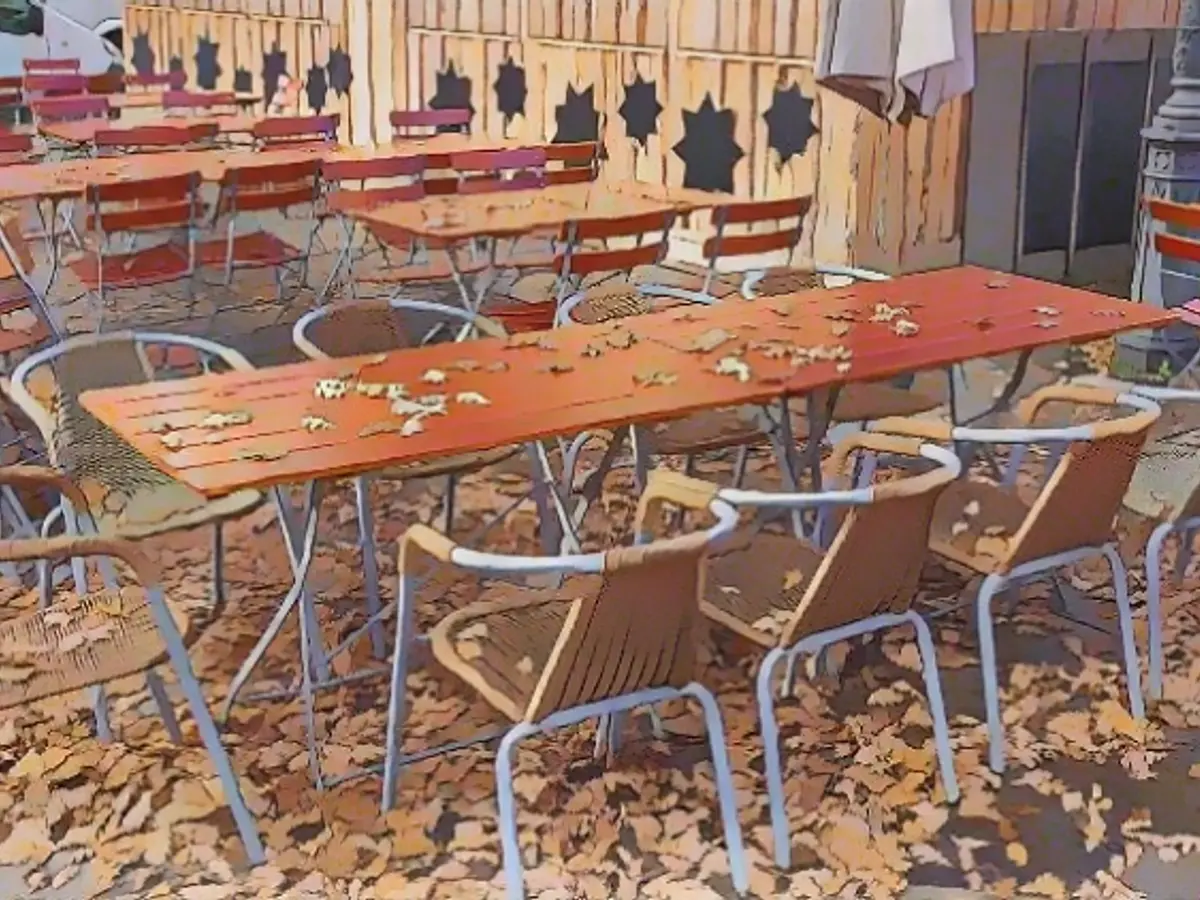"We restaurateurs have served people a fairy tale"
Christoph Elbert is the owner of the trendy restaurant "11a" and four other eateries in Hanover. Due to the return to 19 percent VAT on food, he has decided to close his trendy restaurant for three months. His industry is facing a "shambles", says the restaurateur, "time to protest and clean up". ntv.de talks to him about staff shortages, prices and his own failings.
ntv.de: Your industry representatives arecalling for a major restaurant strikebecause ofthe return to 19 percent VAT .You have decided to close your trendy restaurant 11a in Hanover from January to March. To what extent does such a long closure, such a strike, make sense? What do you want to achieve with it?
Christoph Elbert: I prefer to call it a protest rather than a strike. We urgently need to draw attention to a few things. The point is that the catering industry is struggling with several problems at the same time, one causing the other. Above all, the industry is suffering from a lack of staff. As a result, I can no longer open my restaurant during the same opening hours as before coronavirus. There has been no lunch at 11a for three weeks now. That means less turnover for me. At the same time, energy and food prices have risen, and now there's also the VAT increase from January. It now makes more economic sense for me to close than to stay open. I want to draw attention to this with my example.
Restaurateurs are accused of being tax freeloaders. Can you understand that?
I am not a tax parasite. If we could work at 100 percent, then the economic situation would be different and the higher tax rate would be understandable. But it's not the tax rate alone.
Is there no other option, such as adjusting the opening hours further?
No, I can no longer compensate for the additional costs from January to March with the number of guests we have. I have 30 seats inside. For a good price-performance ratio, all seats would have to be occupied three times in one opening period. But we can no longer do that.
In the cold season, we've never done well economically. But in spring and summer, with a 160-seat terrace, we were always able to make up for the weaker months. With the first ray of sunshine, things took off and we worked our way back. That was predictable ...
And not anymore?
No. This year we can't be sure that we'll recoup everything. I'll only open my restaurant if it's worth it. For an event, for example. But then I'll manage that alone with my family. Otherwise, I'll be serving strike soup, inviting my colleagues to exchange ideas and make themselves visible.
You have running costs, how will you finance these three months?
I'll have to see. I've set aside a budget for now.
You have several locations. Is the situation the same everywhere?
Overall, we have more and more closing times. At our headquarters in 11a, we used to be open seven days a week. Today it's only five. We're closed on Mondays and on Sundays - a high-turnover day - because that's what the staff wanted. In future, our wine bar will only be open three days instead of five. Our pub will probably be closed too. Another of our restaurants has already closed because we can't find any staff. Only our cocktail bar will continue to operate at the usual times.
How high are the costs if you don't run your restaurant?
Between 8,000 and 12,000 euros a month.
Aren't you afraid of losing the last of your staff?
Most of my employees will be working in my other restaurants during the three months. Two out of a total of nine are letting their contracts expire because they want to change jobs. But seven of them will be able to join us again on April 1.
In these times of staff shortages, how much more do you have to pay to get someone to work for you?
I would say at least 30 percent more than before corona. But I understand that too. Our employees also have higher costs and can go to the restaurant less. That's all part of this complex crisis.
Ultimately, it's still only about an increase from 7 to 19 percent - twelve percentage points - more on food on site. Drinks were not reduced, nothing is changing here. This is the part where the catering industry earns most of its money. Eating out is not affected either. Seen in this light, the protest against the VAT increase seems to many like a storm in a teacup. What do you say to these critics?

The problem is that we didn't pass on the extra costs in full in the past because we were afraid of losing customers to cheaper competitors. From an economic point of view, that was a mistake; we should have radically adjusted our prices. Instead, many people said that we couldn't increase them by 20 percent straight away, we could just raise them by a few percent at first. 12 percentage points due to the higher VAT from January probably add up to 30 percent for our restaurant, which we would have had to add since before corona to make it profitable for us today. Unfortunately, we restaurateurs have been too timid and too cowardly all this time.
So all would not be well with VAT at seven percent.
No. The upward price adjustments are overdue, they would have come just as late. As I said, we were simply too hesitant. Now we have this arithmetical legacy. Eating out in a restaurant where there is decent food and decent quality simply has to be much more expensive than it is now.
There is always talk of huge losses in turnover. However, economists have come to a completely different conclusion: an analysis of Mastercard payments has shown that sales in major cities are even higher than pre-corona levels when adjusted for price. This means that things don't look so bad across the board.
It is important to look at how sales are developing in the different areas of the food service industry. Which concept is being pursued, what is being produced and at what price. There are certainly many restaurants that are doing well. But I also know that restaurants that focus on quality are tightening their belts. I'm not talking about a hamburger restaurant, a gastro chain or restaurants that reheat industrially produced food. I'm talking about restaurants with capable and motivated staff, where the product plays a role and where employees are paid correctly. That's where I don't see such a positive mood across the board.
Hasn't this part of the restaurant industry simply missed out on an urgently needed structural change?
Absolutely. We restaurateurs have been telling people a fairy tale. We didn't treat our employees and ourselves well, we didn't pay well. We gave guests the feeling that it's great if they can eat something for ten euros. A visit to a restaurant in Germany was always too cheap. Now we are faced with a pile of rubble that we have to clean up. That's fine by me. The crisis must also be a challenge for an entrepreneur to reposition himself, to reposition himself and perhaps to develop a different form of business.
Are you toying with the idea of giving up and closing down?
I've been thinking for a long time about how we can keep this company healthy. Closing for three months due to the complex crisis is the least bad solution for us from an economic point of view. I want to find out what else is possible during this time.
Diana Dittmer spoke to Christoph Elbert
NTV.de also mentions the potential impact of the VAT increase on the restaurant industry's profit margins. They state that many establishments cannot compensate for the additional costs from January to March with their current customer demand.
In light of these challenges, Elbert emphasizes that the catering industry is facing a "skills shortage" that is further exacerbated by the VAT increase. He also points out that energy and food prices have risen, making it economically unviable for some establishments to operate at their previous levels.
This discussion highlights the complex interplay of various factors affecting the restaurant industry, including the VAT increase, rising costs, and skills shortages. The industry's escalating problems raise questions about potential government interventions and the need for businesses to adapt and innovate in response to these challenges.
Source: www.ntv.de








